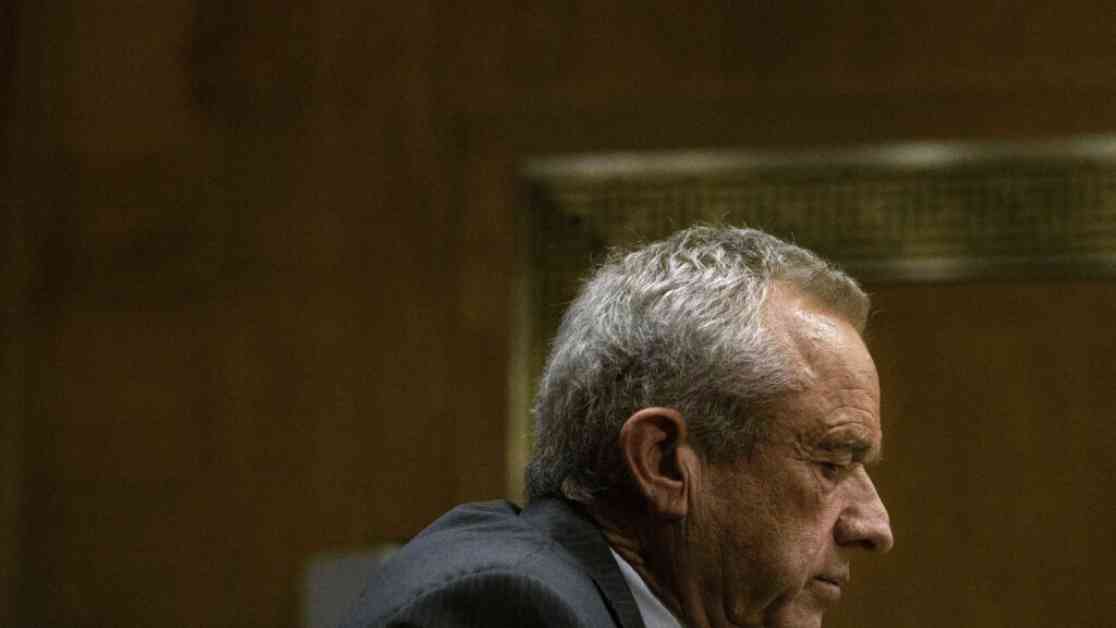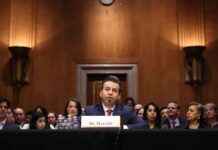Robert F. Kennedy Jr., the nominee for HHS secretary under President Trump, recently found himself embroiled in controversy surrounding a fundraising email sent out by his presidential campaign. The email was sent during a federal health agency communications blackout, prompting backlash and questions about its appropriateness. Kennedy, in response to inquiries from senators on the Senate Finance Committee, acknowledged that his campaign committee was carrying a debt from his presidential run, and the fundraising email was an attempt to address this financial shortfall.
Kennedy’s statement on the matter highlighted the complexities of federal campaign finance laws, which require campaign committees to retire their debt before officially terminating the campaign. This revelation shed light on the financial intricacies of political campaigns and the regulatory framework that governs them.
Expert Insights on Campaign Finance Laws and Ethical Practices
According to campaign finance experts, the situation involving Kennedy’s fundraising email underscores the importance of transparency and ethical practices in political fundraising. Dr. Jane Smith, a political science professor specializing in campaign finance at a leading university, emphasized the need for candidates to adhere to strict financial regulations to maintain public trust and credibility.
Dr. Smith noted, “Campaign finance laws are designed to ensure transparency and accountability in the electoral process. Candidates must navigate these regulations carefully to avoid any potential ethical violations that could tarnish their reputation.”
Kennedy’s fundraising email, while well-intentioned in addressing campaign debt, raised concerns about the timing and appropriateness of soliciting donations during a federal agency communications blackout. This incident serves as a cautionary tale for political campaigns to exercise prudence and ethical judgment in their fundraising efforts.
The Impact on Public Perception and Campaign Integrity
The fallout from Kennedy’s fundraising email has sparked debates about the intersection of politics, finance, and ethics in the realm of electoral campaigns. Public perception of political candidates can be heavily influenced by their fundraising practices, as voters scrutinize the integrity and transparency of campaign operations.
In the wake of this controversy, Kennedy’s reputation as a nominee for HHS secretary may face scrutiny as critics question the ethical implications of his campaign’s fundraising tactics. The incident serves as a reminder of the delicate balance between financial obligations and ethical responsibilities that candidates must navigate in the political arena.
Looking Ahead: Lessons Learned and Future Implications
As the dust settles on the fundraising email debacle, Kennedy’s campaign committee faces the task of addressing the debt accumulated during his presidential run while upholding ethical standards and public trust. The incident serves as a learning opportunity for political candidates and campaign teams to prioritize transparency, accountability, and ethical conduct in their fundraising efforts.
Moving forward, Kennedy and his team must navigate the complexities of campaign finance laws with diligence and integrity to avoid similar controversies in the future. By demonstrating a commitment to ethical fundraising practices and financial transparency, candidates can uphold the integrity of their campaigns and earn the trust of the voting public.
In conclusion, the fundraising email controversy involving Robert F. Kennedy Jr. sheds light on the intricate dynamics of campaign finance, ethics, and public perception in the realm of electoral politics. By learning from this incident and prioritizing ethical conduct, political candidates can uphold the integrity of their campaigns and build credibility with voters.

















